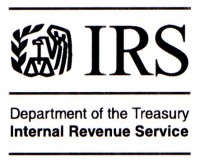 Nashville, TN – Before you start a summer job, take a vacation, or send the kids off to camp, the Internal Revenue Service wants you to know that certain summertime activities may help you qualify for tax benefits. However, there are also some tax issues that must be handled correctly now to avoid problems later.
Nashville, TN – Before you start a summer job, take a vacation, or send the kids off to camp, the Internal Revenue Service wants you to know that certain summertime activities may help you qualify for tax benefits. However, there are also some tax issues that must be handled correctly now to avoid problems later.
“Remember that some common summertime activities can lead to tax benefits, but they can also lead to tax problems if not handled correctly,” said IRS spokesman Dan Boone.
Here are some tips from the IRS that may help you lower your taxes and avoid tax problems:
- Make sure summer employer classifies you correctly. Summer workers sometimes are misclassified as independent contractors (self-employed) rather than as employees. Employers who do this usually fail to withhold taxes from the worker’s wages, often leaving the worker responsible at tax time for paying income taxes plus Social Security and Medicare taxes. Workers can avoid higher tax bills and lost benefits if they know their proper work status.
- Summer workers, students may be exempt from tax withholding. If you got a refund of all withheld income taxes for 2010 and you expect the same for 2011, you may claim “exempt” on your Form W-4 when you’re hired. That can increase your paycheck and possibly let you avoid having to file a 2011 federal tax return. If you claim exempt status, your employer should withhold Social Security and Medicare taxes from your wages but not federal income tax.
- Getting married? Before you head off on the honeymoon, do a few things now in order to avoid problems at tax time. First, report any name change to the Social Security Administration before you file your next tax return. Next, report any address change to the Postal Service, your employer and the IRS to make sure you get tax-related items. Finally, use the Withholding Calculator at IRS.gov to make sure your withholding is correct now that there are two of you to consider.
- Clean out, donate, deduct. Those long-unused items you find during spring or summer cleaning can probably be donated to a qualified charity and may garner you a tax deduction as long as they’re in good condition. You must itemize deductions to qualify to deduct charitable contributions and you must have proof of all donations.
- Help with service project, deduct mileage. While there’s no tax deduction for time donated toward a charitable cause, driving your personal vehicle while donating your services on a trip sponsored by a qualified charity could get you a tax break. Itemizers can deduct 14 cents per mile for charitable mileage driven in 2011. Keep good records of your mileage.
- Get tax credit for summer day camp expenses. Many working parents must arrange for care of their younger children under 13 years of age during the school vacation period. A popular solution — with favorable tax consequences — is a day camp program. Unlike overnight camps, the cost of day camp may count as an expense towards the Child and Dependent Care Credit.
- Owner of vacation home may get two tax breaks. First, mortgage interest and real estate taxes paid on a second home are usually deductible if you itemize. Second, if you rent your vacation home out fewer than 15 days per year, that rental income is typically not taxable.
- Report winnings, possibly deduct losses. If Lady Luck smiles on you during your vacation, remember that gambling winnings must be reported on your tax return. Losses are deductible only if you itemize and have winnings that equal or exceed your losses. Good records are a must.
- Deduct job-related moving expenses. Relocating due to a job? A tax break may be coming your way and you won’t have to itemize deductions to get this one. If you can satisfy the distance and time tests, job-related moving expenses are deductible. Other requirements apply if you are self-employed. Members of the armed forces do not have to meet these tests if the move was due to a permanent change of station.
- Deduct storm damage losses. You may be able to claim a casualty loss for the reduction in value of property damaged by floods, storms, fire or other disasters. And if your county was declared a federal disaster area, you may be able to file a tax return immediately to claim that loss. If you’re repairing storm damage, remember the energy tax credit is available when you purchase things like insulation or certain heating and cooling systems, water heaters, windows or doors.
For details about any of these topics, visit www.irs.gov or call the IRS toll-free at 1-800-829-1040 (1-800-829-4059 TDD).


